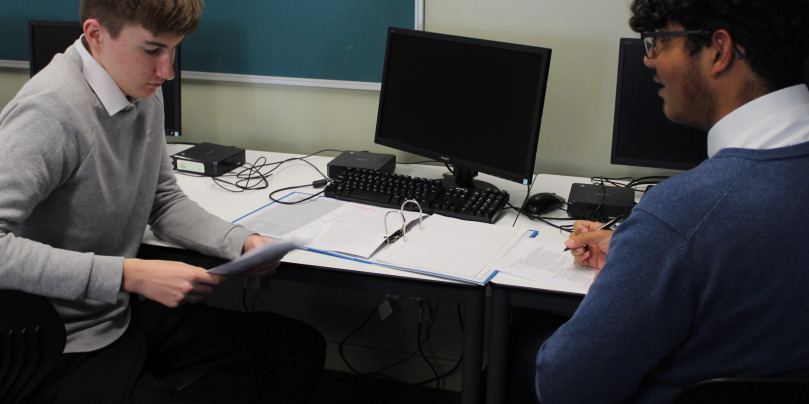
Economics GCSE
You should choose Economics if:
- You want to learn about how the economy works and how it impacts everyone’s daily lives
- You want to understand the world in which you live
- You want to learn about how organisations determine the optimum pricing model for consumers
- You have a deep passion for wanting to solve the economic problem that exists in society
Careers
Many people studying Economics will choose to pursue the subject or a related subject at A-level or university. Careers in finance, banking, the financial sector and retailing are popular choices for students of Economics. Some students may choose the apprenticeship route. Economics has been studied by lots of popular and successful people in the world of business, politics, journalism and broadcasting.
The Course
The course consists of these 3 areas and sub-units:
Introduction to Economics
1.1 Main economic groups and factors of production
1.2 The basic economic problem
The role of markets and money
2.1 The role of markets
2.2 Demand
2.3 Supply
2.4 Price
2.5 Competition
2.6 Production
2.7 The labour market
2.8 The role of money and financial markets
Economic objectives & the role of government
3.1 Economic growth
3.2 Low unemployment
3.3 Fair distribution of income
3.4 Price stability
3.5 Fiscal policy
3.6 Monetary policy
3.7 Supply side policies
3.8 Limitations of markets International trade and the global economy
4.1 Importance of international trade
4.2 Balance of payments
4.3 Exchange rates
4.4 Globalisation
Economics is about people and their economic choices. This course enables learners to appreciate we are all part of the economy and that economics relates to every aspect of our lives – from the decisions of individuals or families to the structures created by governments and producers. It will develop learners’ understanding of how economic issues affect choices about resources and markets and vice versa.
Economics will enable learners to become better-informed and more responsible citizens, consumers and producers, by allowing them to develop an awareness for the importance of the economic dimension to our lives. This will allow them to become more confident in the economic choices relating to their life and work.
How will you be assessed?
OCR’s GCSE (9–1) in Economics is a fully linear course and consists of two mandatory components that are externally assessed. There will be two question papers assessing the two components. Each question paper will have 20 multiple choice questions and short case studies with related short and medium response questions as well as the opportunity for extended writing (maximum of 6 marks).
| This will consist of: | ||||
| Paper 1 | 50% | Introduction to Economics | 80 marks | 1 hour 30 minutes exam |
| Paper 2 | 50% | National and International Economics | 80 marks | 1 hour 30 minutes exam |






